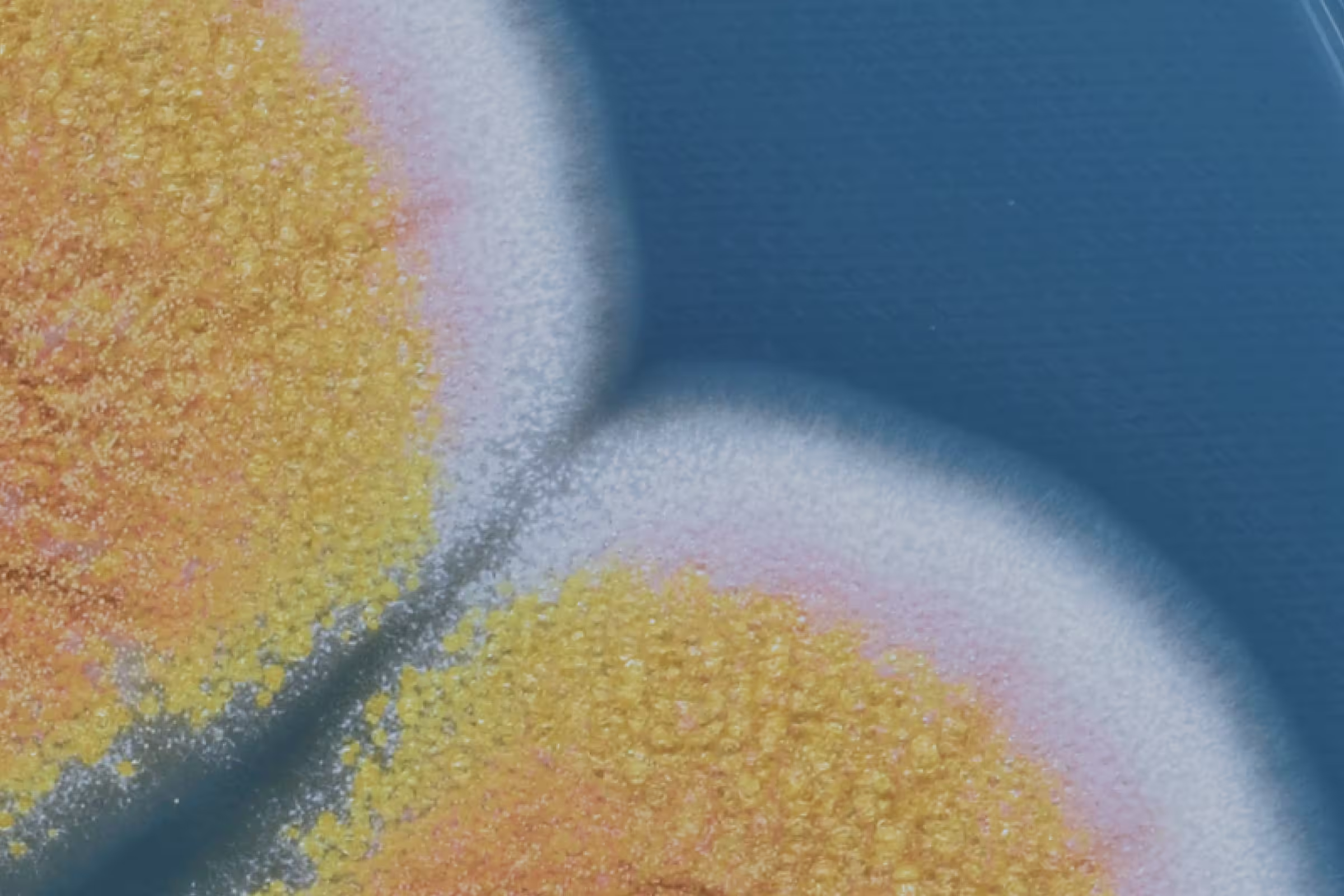

Vaginal Pain and Discomfort: Causes, Symptoms, and When to See a Doctor
Vaginal pain can feel sharp, burning, or throbbing. Learn what causes different types of discomfort, symptoms to watch for, and when to seek help.
Words by Olivia Cassano
Scientifically edited by Dr. Krystal Thomas-White, PhD
Medically reviewed by Dr. Kate McLean MD, MPH, FACOG
Experiencing discomfort in the vaginal or vulvar area can be distressing, and understanding the underlying causes can help in addressing the issue effectively.
Vaginal pain can have several causes, and understanding where the pain is coming from — whether it’s the vagina or nearby areas like the vulva — is essential for diagnosis and treatment. It’s easy to spiral and immediately assume the worst, but luckily, most causes of genital discomfort are easily treatable.
Let’s go over some common causes of vaginal pain, what they might feel like, and when it’s time to seek medical attention.
Understanding the difference between vaginal pain and vulvar pain
When talking about “vaginal” pain, it’s important to distinguish it from pain in the vulva. The vagina is the internal canal that leads from the opening of the vagina to the cervix, while the vulva is the outer (visible) part of the genital area that includes the labia minora, labia majora, clitoris, and vaginal opening (known as the vestibule).
Conditions affecting the vulva can cause pain but often need different treatments than those affecting the vagina. For accurate diagnosis, it’s crucial to know where the pain is located and to describe it clearly to your healthcare provider. That’s just one of the many reasons why correct language matters so much in the context of women's health. Common causes of vaginal pain and discomfort
Both vulvar and vaginal pain can stem from various reasons. Below are some of the most common causes.
Sexually transmitted infections
Some sexually transmitted infections (STIs) can lead to vaginal pain, especially if they cause inflammation in the vaginal area or nearby tissues. STIs like chlamydia, gonorrhea, and herpes are among those that might cause this kind of discomfort.
- Chlamydia and gonorrhea: These bacterial infections often start by affecting the cervix, but they can also lead to inflammation in the vagina. This might result in sharp or burning sensations, particularly when you urinate or during sexual intercourse. If they're not treated, they can spread to the upper reproductive organs, which could result in more severe pelvic pain.
- Herpes: Genital herpes, caused by the herpes simplex virus (HSV), can lead to painful sores in and around the vagina. When these sores are present, many women experience sharp, stinging sensations, especially during urination or any contact with the affected area.
Besides pain, these STIs can come with other symptoms like unusual discharge, itching, or irritation. Since these symptoms can also be similar to other non-infectious issues, it’s really important to get tested if you think you might have an STI. The good news is that early diagnosis and treatment can help relieve pain and prevent any complications down the road. STIs are incredibly common, and most are treatable or manageable.
Yeast infections
Yeast infections are a type of fungal infection caused by an overgrowth of Candida. They’re incredibly common, up to 75% of women will have a vaginal yeast infection at least once in their life.
Symptoms of a yeast infection include:
- Itching and discomfort in and around the vagina
- Redness and swelling of the vulva and vagina
- Thick, white vaginal discharge that looks like cottage cheese
- A burning sensation when you pee
- Painful intercourse.
Yeast infections are one of the most common causes of genital discomfort, but luckily, they’re pretty straightforward to get rid of. You can treat a yeast infection with over-the-counter or prescription antifungal treatments, such as miconazole or clotrimazole creams or suppositories. For persistent infections, a healthcare provider may prescribe oral antifungals like fluconazole or boric acid suppositories.
Bacterial vaginosis
Bacterial vaginosis (BV) results from an imbalance in the normal bacterial flora of the vagina, leading to an overgrowth of bacteria like Gardnerella and Prevotella. Symptoms of bacterial vaginosis include:
- A strong fish-like odor, often more noticeable after sex
- Thin, gray vaginal discharge
- In rare cases, itching or irritation.
Discomfort isn’t always a symptom of bacterial vaginosis, but it can happen. BV is typically treated with antibiotics such as metronidazole (oral or vaginal gel) or clindamycin (cream or oral). It has a nasty habit of coming back, so reduce the risk of recurrent bacterial vaginosis by avoiding using douches and using condoms during sex.
Vulvar contact dermatitis
Vulvar dermatitis is an inflammatory condition of the vulva, which can cause:
- Redness or rash
- Severe itching and burning
- Cracked, scaly, dry skin, blisters, and bumps
- Swelling or tenderness of the vulva.
Common triggers include allergens (like fragrances and latex) and irritants (soaps, detergents).
Identifying and avoiding potential irritants is key. Topical treatments may include corticosteroid creams to reduce inflammation and antihistamines to manage itching. For immediate soothing relief, Evvy’s Anti-Itch Vulva Cream is a great option. Designed to calm irritation and provide gentle hydration, it’s ideal for restoring comfort while supporting the delicate balance of the vulvar skin. Keeping the vulvar area clean with mild, unscented products and wearing loose, breathable clothing can also help.
Vaginal dryness
Vaginal dryness isn’t only an issue during menopause — women of any age can experience it. Hormonal changes, certain medications (like antihistamines or birth control pills), or even stress can cause or worsen dryness.
This dryness can make the vaginal tissues more sensitive and prone to pain or discomfort, especially during sex or when using tampons. Some women may feel a sharp, almost “raw” pain if dryness is severe. Over-the-counter lubricants or vaginal moisturizers can help, though persistent dryness should be evaluated by a doctor to rule out other causes.
Vulvodynia
Vulvodynia is a chronic pain condition that affects the vulva, which can cause persistent discomfort or pain without a known cause. The pain can be be localized (in a specific area like the vaginal opening, known as vestibulodynia) or generalized across the vulva, and it can range from burning, stinging, or rawness to sharp, stabbing sensations. In some cases, the pain comes out of nowhere (unprovoked vulvodynia); in others, it’s triggered by touch, pressure, or activities like sexual intercourse, tampon use, or even sitting for long periods (provoked vulvodynia).
Although vulvodynia doesn’t always involve visible signs of irritation or infection, it can have a profound impact on quality of life. It may be linked to nerve sensitivity, hormones, muscle dysfunction, or past infections, but in many cases, the exact cause remains unknown.
Because the symptoms often overlap with other vaginal conditions, diagnosis can take time. Treating vulvodynia may involve a combination of pelvic floor therapy, nerve medications, topical treatments, and lifestyle adjustments to manage triggers and relieve discomfort.
Pelvic floor muscle tension
The muscles of the pelvic floor support the vagina, uterus, and nearby organs. When these muscles become too tight or tense (a condition known as pelvic floor dysfunction), it can cause sharp, stabbing pain in the vagina or at the vestibule.
This type of pain may also occur during or after intercourse, while using tampons, or even while sitting. Physical therapy focused on pelvic floor relaxation and strengthening exercises can help relieve this type of pain. Although it may feel alarming, it’s not a serious condition and can be easily treated with the help of a qualified pelvic floor physiotherapist.

Recurrent symptoms? Get Evvy's at-home vaginal microbiome test, designed by leading OB-GYNs.
Vaginismus
Vaginismus is a condition where the vagina tightens up involuntarily, which can make penetration uncomfortable or even difficult. Many people describe it as a sharp, cramp-like pain at the entrance of the vagina, particularly when attempting penetration. Often, this condition can be linked to feelings of anxiety or fear of pain. The good news is that there are effective treatments available. Techniques like pelvic floor therapy, relaxation exercises, and gradual desensitization can help.
Pelvic inflammatory disease
Pelvic inflammatory disease (PID) is an infection of the female reproductive organs, including the uterus, fallopian tubes, and ovaries. It typically happens when bacteria travel from the vagina or cervix to the upper reproductive tract. PID can cause significant discomfort because the infection leads to inflammation and scarring of the tissues, resulting in pain and tenderness in the pelvic area.
Symptoms of PID vary, but they often include:
- Lower abdominal or pelvic pain
- Abnormal vaginal discharge with an unusual odor
- Painful sex.
Other symptoms might include irregular menstrual bleeding, fever, and fatigue. Some women may experience only mild symptoms or none at all, which can delay diagnosis and increase the risk of complications.
If left untreated, PID can lead to serious health issues such as chronic pelvic pain, infertility, and ectopic pregnancy (where a fertilized egg implants outside the uterus). Treatment usually involves a course of antibiotics to eliminate the infection. Early diagnosis and treatment are crucial to prevent long-term complications. Regular STI screenings and practicing safe sex can help reduce the risk of developing PID.
Urinary tract infection
Urinary tract infections (UTIs) are a type of bacterial infection that affects parts of the urinary system, including the kidneys, ureters, bladder, and urethra. They are especially common in people with female anatomy due to the shorter length of the urethra, which makes it easier for bacteria (often E. coli from the digestive tract) to reach the bladder.
Common symptoms of a UTI include:
- A burning sensation or pain when you pee
- A frequent and urgent need to pee, even if little or no urine comes out
- Cloudy, dark, or strong-smelling urine
- Pelvic pain or discomfort, particularly in the lower abdomen
UTIs are typically diagnosed through a urine sample and can be effectively treated with a short course of oral antibiotics. It's important to complete the full course even if symptoms improve. For those with recurrent UTIs, additional treatments such as low-dose preventative antibiotics or vaginal estrogen may be considered. Prompt treatment is key, as untreated UTIs can lead to more serious kidney infections.
Endometriosis
Endometriosis is a condition where tissue similar to the uterine lining grows outside the uterus, causing pain. When endometriosis affects tissues near or around the vagina, it can cause deep, stabbing pain, particularly during intercourse or menstrual periods. Endometriosis can also cause pelvic or abdominal pain, heavy periods, and other menstrual irregularities. Treatment options range from pain management and hormonal therapies to, in severe cases, surgery.
Cystitis or interstitial cystitis
Cystitis, which is a bladder infection, or interstitial cystitis, a long-term bladder condition, can sometimes create discomfort that feels like it’s coming from the vagina, even though it’s actually coming from the bladder. Many people describe this pain as sharp or burning, and it might get worse when you urinate or after eating certain foods. If you’re experiencing frequent bladder pain, urgency, or pelvic discomfort, don’t hesitate to reach out to a healthcare provider.
Foreign body or trauma
Occasionally, pain in the vagina can be caused by a foreign object, like a forgotten tampon or contraceptive device. These objects can cause inflammation and infection if left in place too long, leading to sharp or throbbing pain. Trauma caused by injury, rough sex, or childbirth can also result in genital pain.
Lighting crotch
"Lightning crotch" is a term that describes a sudden pain some pregnant women might feel in their pelvic or vaginal area. It can feel like a quick, jarring electric shock, and although it only lasts for a few seconds, it can be quite surprising and uncomfortable. This sensation usually happens due to pressure on the nerves in the pelvic region, often caused by the baby's position and movements as they grow and shift. It’s pretty common in the later stages of pregnancy and, thankfully, it's generally harmless, even if it can be a bit uncomfortable at times.
If you find yourself feeling this way, changing positions, trying out some relaxation techniques, or gently massaging the area might help ease the discomfort a bit. Most of the time, this feeling goes away on its own. However, if the pain sticks around or feels really intense, it’s always a good idea to chat with your OB-GYN just to be sure everything is okay.
Common ways vaginal pain shows up
Vaginal pain can present in many different ways, and the experience is often as unique as the person feeling it. While some types of pain may be sudden and intense, others may be more subtle, persistent, or triggered by specific activities like sex, going to the bathroom, or even sitting. Understanding the type of pain you're experiencing can help both you and your doctor determine its underlying cause — whether it's hormonal, infectious, neurological, or related to pelvic floor dysfunction.
Here are some of the most common ways vaginal pain shows up:
- Sharp or stabbing vaginal pain: This type of pain often feels sudden and localized, almost like a knife-like sensation. It may come on without warning or be triggered by insertion (such as during sex or while using a tampon). It could be related to conditions like vulvodynia, pelvic nerve pain, or vaginal dryness.
- Throbbing or pulsating vaginal pain: A rhythmic, aching sensation in the vaginal area can sometimes occur after intercourse, prolonged sitting, or in association with pelvic congestion syndrome. This type of pain may feel deeper and more internal.
- Burning or stinging vaginal pain: Often described as raw, inflamed, or irritated, this kind of pain may be constant or occur with urination or movement. It’s commonly linked to infections, allergic reactions, or skin conditions.
- General discomfort or irritation: This can include feelings of dryness, itchiness, tightness, or mild aching. It’s often associated with hormonal changes (like menopause), allergic reactions, or overuse of irritating hygiene products.
Vaginal pain is real, valid, and worth addressing — especially if it disrupts your daily life or intimacy. If any of these sensations persist, it’s important to seek professional evaluation rather than self-diagnosing.
When to see a healthcare provider
Recurring vaginal pain that doesn’t go away or worsens over time should always be checked out by a doctor, especially if it’s accompanied by other symptoms, including:
- Abnormal vaginal discharge
- A strong, foul, or fishy odor
- Abnormal vaginal bleeding (after sex or between periods)
- Burning, itching, or irritation.
Even if the pain is intermittent, a consultation can help you identify any underlying issues and develop a treatment plan.
FAQ
Why do I have a sharp pain in my pubic area?
Common causes include sexually transmitted infections, pelvic floor muscle tension, vaginismus, or conditions like vestibulodynia. Other potential causes are related to bladder issues, such as interstitial cystitis, or reproductive conditions like endometriosis or PID. Each condition may require different treatments, so it’s essential to consult a healthcare provider who can help diagnose the issue and recommend appropriate care.
How do I stop sharp pain in my private area?
The first step is to figure out what's causing it, since different issues need different approaches. For infections, your doctor can prescribe antibiotics. If dryness is the culprit, starting hormone therapy and using lubricants or vaginal moisturizers can really help soothe discomfort. For those experiencing pain from pelvic floor dysfunction or conditions like vaginismus, a physical therapist can be a great resource to help relieve that tension and ease your pain. If you're dealing with chronic issues like vestibulodynia, interstitial cystitis, or endometriosis, a mix of pain management strategies, physical therapy, and sometimes medication may be necessary, all under the guidance of a healthcare professional. It’s always best to consult with a healthcare expert to find the right treatment for you. Self-diagnosing can sometimes lead to more discomfort or complications, so reaching out for help is a positive step toward feeling better.
Why do I feel vaginal discomfort without having an infection?
There are several reasons why you might feel discomfort without having an infection. One of the most common causes is hormonal changes, especially during menopause, perimenopause, or postpartum, when estrogen levels drop. Lower estrogen can lead to vaginal dryness, thinning of the vaginal walls (vaginal atrophy), and a loss of natural lubrication, all of which can cause discomfort, irritation, or a feeling of tightness. Other possible causes include allergic reactions or sensitivities to soaps, detergents, lubricants, or even the materials in underwear or pads. Friction from clothing, sex, or prolonged sitting can also lead to irritation. Additionally, pelvic floor muscle tension or conditions like vulvodynia (chronic vulvar pain) can create discomfort without signs of infection.
Can stress cause vaginal pain?
Yes, sometimes stress can contribute to vaginal pain. When you're under chronic or intense stress, your body can respond in ways that affect the pelvic floor. One common reaction is increased tension in the pelvic floor, which can lead to pain, tightness, or pressure in the vaginal area. This is sometimes referred to as pelvic floor dysfunction, and it's often overlooked as a source of vaginal pain. Stress can also heighten your awareness of physical sensations and lower your pain threshold, making mild discomfort feel more intense. For some people, stress may trigger or worsen conditions like vulvodynia, where vaginal or vulvar pain occurs without a clear medical cause. Even hormonal shifts caused by prolonged stress can impact vaginal health indirectly, potentially contributing to dryness or irritation. If you’ve ruled out infection and other medical causes, and your symptoms seem to flare up during times of emotional strain, stress may be a contributing factor. Addressing stress through relaxation techniques, pelvic floor therapy, or mental health support can often help reduce or manage the pain.





